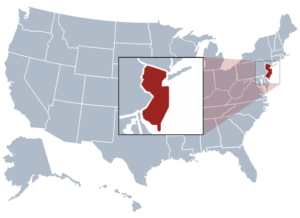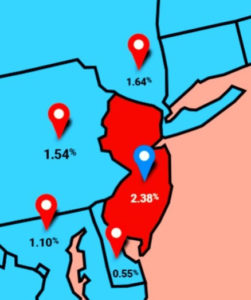
By Brian Thomas
_
_
 A Historical Recap:
A Historical Recap:
New Jersey established its first system of property taxation in the late 1600’s when it imposed a tax of one-half penny per acre on landowners for the purpose of establishing a central government.
It wasn’t until the 1870’s, however, that state legislators amended the state’s constitution to put in place a formal system of valuation and taxation of real property & our modern-day property tax system was born.
_
Where Are We Today?
Since the 1800’s, the value of New Jersey residential properties—and their property tax bills—have grown exponentially.
Nationwide, the average property tax rate is 1.19%. Whereas, the average residential property tax rate in New Jersey is 2.38%, double the national average. Compounding this is that fact that 89% of municipalities increased
residential assessments in the last two years.
For a family making the median income of $68,000 per year paying the average property tax bill of $8,690 – they are spending almost 11% of their total income on property taxes.
_
 How Do We Compare to Other States?
How Do We Compare to Other States?
New York’s average property tax rate in 2017 was 1.65%, making it the 11th highest property tax rate in the country. Pennsylvania is not far behind at 1.55%. Massachusetts & Maryland have property tax rates at the lower end of the scale at 1.21% and 1.10% respectively while Delaware has a property tax rate of just 0.55%.
New Jersey’s average, 2.38% ranking it the highest in the nation.
Why do property tax rates vary so wildly from state to state? The principal differences between how New Jersey jurisdictions calculate property taxes versus how they are calculated in other states…
_
Continue reading on our website…
_


